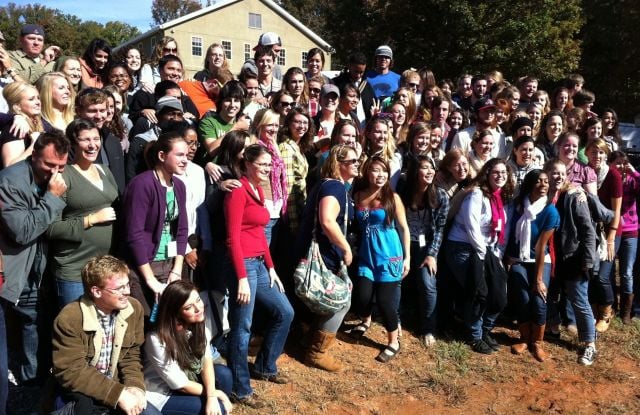Vulnerability – A good or bad thing?

A friend called me recently. A mega-church pastor has offered him a senior
position on the staff. “But,” he said, “there’s
one problem. We have a fundamental
disagreement on a philosophy of vulnerability.
He thinks it’s bad and I think it’s good.”
 If you’re a leader, I hope that statement explodes in your
If you’re a leader, I hope that statement explodes in your
spirit. It does in mine. It takes a secure leader to be vulnerable. By showing his weaknesses, he gives his enemies potential weapons with which to
attack him. Expose your underbelly to
someone and they might shoot you – it goes against our self-protective
instincts. My guess is that maybe 10% of
leaders practice this.
The problem is, self-protection isn’t Jesus’ way of leading. He said, “The first shall be last and the
last first.” When you’re weak, you’ll be
made strong. In essence, “Show your
underbelly to the people who might hurt you and let me take care of protecting
you.” And, of course, he modeled this
for us right to the end.
Only by making ourselves vulnerable do we truly empower our
followers. A great majority of people
live with truck-loads of self-doubt.
They are well aware of how they regularly mess up and live in prisons of
fear.
The key to unlock the jail door and liberate them from this
prison is vulnerability. “You’re not
alone,” it says. “To be human is to mess
up. Here’s what grace looks like. I’ve got prison clothes on, too.”
Vulnerability is a good thing. It allows us to take the enemy’s weapons and
use them against him. Do yourself a favor
– never follow a leader who doesn’t regularly model vulnerability. Any gospel that doesn’t include large
measures of vulnerability is not a true gospel and any leader worth following will wear his humanity openly.
See another blog on vulnerability here.



Ok Seth you guessed 10% of leaders practice this, well my guess 2%. How many times do we hear minister tell of their fears and failures???
Yes Seth, indeed self-protection isn’t Jesus’ way of leading… He also said, “Now is my soul troubled; and what shall I say? Father, save me from this hour: but for this cause came I unto this hour.” (John 12:27)
Could this be another reason many of our discipleship methods produce more weak than strong believers? Are we led by masquerades whose real personality can best be seen at home…in the bedroom…bathroom? I didn’t say boardroom…
Anytime I tell a story of how I messed up, brethren around are mute for a brief moment that could seem like an hour. I guess they are trying to readjust to the shock. “He shouldn’t say such things in public…” is the expression on their faces.
May our model be Jesus…He even cried, “My Father, My Father, why have you forsaken me?” I can’t stop wondering why He had to say it. He should have just thought it in His heart and that way, people wont know He’s ignorant.
Thanx for the blogs Seth. You are a blessing.
Seth,
Awesome bro. This is one of the things that we at Mobile Christian are trying to establish with our plurality of leadership. Of course it is dangerous and tough. Opening our hearts and being vulnerable to one another is not easy. We all want to be self preserving. I’m reminded of David and Jonathan when they made covenant. They disrobed and exchanged weapons, thus enabling the other the power to destroy. Love the blogs & keep it up.
This is very true. Satan takes hold in the things we hide from people, but they lose their power when we air them. I’ve been forthcoming about many of my mistakes to my youth group small group, and instead of looking down on me, they do the opposite and then feel comfortable coming to me with the things they struggle with. It’s been amazing to see how willing they are to then search their own habits and motives after I was honest about mine. There’s great power in denying Satan of a tool.
Wow!! Powerfull words, Please add me to your list.. See ya soon
vulnerability – isn’t it really just another word for being humble? Confess your faults to another and pray for healing, submit to each other, are these not examples of Christian vulnerability, even in leadership, if not more? I have noticed over the years of Christian life that most, if not all ministry have “deep” secrets that plague them. Moreover, this continues because ministry cannot “share.” Early in my service, a elder minister informed to never let yourself be vulnerable, or weak, people will use it against you. I have gone against the grain here, and it has cost me many opportunities for ministering in churches, and groups; however, it is the right thing to do. I John 1:7 when we walk in the light with Jesus, then we can walk in the light with each other, and we truly experience the blood that cleanses us. I have often wanted to start a Christian community where people can come; especially wounded ministry and be healed. Maybe, some of our brothers and sisters in the “news” would have had a fellowship of light believers, walking tenderly, they would not have fallen. “..Oh, how the mighty are fallen!” St. Mark
Vulnerability is a neccesity of good, fruitful ministry. I’ve been in a church plant where there wasn’t vulnerability and it tore the group up. If we are to learn as children, who get most of their instruction from observation instead of lecturing, then we need vulnerable pastors. On the flip side, it’s not easy. I’m not a pastor, but in my profession, I certainly feel the pressure to look like I’ve got everything together publically, that my family life is perfect, that isn’t really present in most fields. Some of my best friends have been pastors because we can both relate to this problem. I think the lack of vulnerability comes both from those in the front being afraid of being open, as well as the expectations put on them.
Your last three posts have ripped into my heart with truth. They’re all the more painful because they address things I’m struggling with right now in our church. We’ve been wounded time and again by leaders in the church (not the pastor, but the pastor isn’t the leader in this church – go figure). People here come straight out of a Louis L’Amour novel – independent, hard working to a tremendous fault, and men don’t open up or show vulnerability. They were taught that by their former pastor… who is now struggling to love and be loved by his family that he ignored for so many years in the name of sacrificing for Jesus. So, thank you for these posts. I need to reread them, and surrender all this stuff to Jesus. And He’s doing something great – healing our wounds, helping us to persevere, and giving us the strength to forgive, and even open up our heart again… though that last one has been the hardest.
You rock Seth. Thank you for having a heart that truly wants to follow Jesus and be like him. You are a true encouragement.
As a pastor, I know that if it’s not fear that keeps us from being vulnerable, it’s often pride. Pride is the great enemy of our being healed by Jesus, pride that we have it together, pride that we don’t need healing like “those people” do. Pride that says “Don’t be vulnerable – don’t let people see the real you.” It is a destroyer. I would be terrified to work for that pastor, because I know that that pride must be broken in order to display the life of Jesus. Especially in a senior leader.
It’s awesome to see your heart. Thanks!
thanks for the encouragement, Paul and Rob. We all need it to keep pushing into this tough subject.
Seth, I love that this is your policy, and that you really believe it and live it and encourage others to do the same!
Kim and I had a long talk about this before she left for the WR – about whether it was “okay” for her to be vulnerable and broken as a leader (because so many of us have learned it’s NOT okay and have been discouraged from it in the past). I encouraged her to lead from a place of vulnerability and told her that I felt I could say with confidence that you and everyone else above her in authority at AIM would tell her the same…
Thanks for showing me I was right. I’m so glad I work for a leader like you!
Great topic!
Personally I think it is essential for any leader to be vulnerable and to allow others to see it. I came to the Lord 7 years ago after living most of my life like John Wayne so I know first hand that pride and the fear of being vulerable are deadly. I can not be open with someone who has the appearance of being invulnerable, when I am trying to talk to leaders like this it is all too easy to feel like I just need to suck it up and be like they are. Not only is this damaging in emotional and physical terms it is (I believe) spiritualy damaging and scripturaly wrong. One of the best example of vulnerability for me is in Psalm 51, not only did King David humble himself before God he wrote it down for all to see. He let us see that even though he was a man after God’s own heart he was human and made some terrble mistakes, he let us see his faith in God in action.. If leaders can not demonstrate this kind of faith how are we to help people grow into maturity?
There is no Scriptural support for vulnerability being virtuous. More details here:
http://elenburg.blogspot.com/2010/07/vulnerability.html
Trying to contrast vulnerability with humility is a false dichotomy. One doesn’t have to be vulnerable in order to be humble.
I am somewhat taken back that any leader in the Church would feel that they were invulnerable. We are all under constant attack, and to not feel that vulnerability is arrogant at best. So, I agree with you that vulnerability is a good thing as it keeps us humble before God, striving for the life that Christ describes for us, and ready to accept even the slightest glimmer of salvation we can achieve.
Steve J